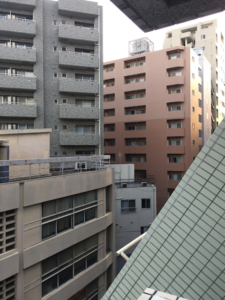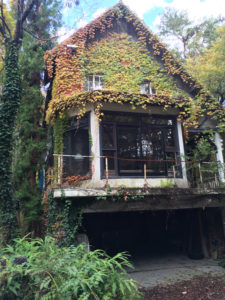
Investing in Japan’s Ageing Condominiums:
Opportunities and Insights for
Foreign Investors Amid Legal Changes
Are you a foreign investor interested
in Japan’s real estate market?
As a leading real estate agent for foreign investors, we’re here to provide you with the latest updates
and insights into the industry.
Today, we’re discussing the Japanese government’s proposed amendments
to the Condominium Ownership Act and what it could mean for you as a potential investor.
The Japanese government is considering amending the Condominium Ownership Act by the fiscal year 2024,

aiming to facilitate smoother decision-making processes at resident meetings
and promote timely repairs for ageing condominiums.
In Japan, both the population and condominiums are ageing.
Currently, non-attendance at meetings is considered opposition,
which can lead to difficulties in passing necessary resolutions for renovations.
The proposed amendments would ease the requirements for passing resolutions,
such as lowering the majority requirement to less than three-quarters.
There were approximately 2.49 million condominiums in Japan over 30 years old as of the end of 2021,
with expectations of the number increasing to around 5.88 million in 20 years.
Timely repairs and renovations are essential for maintaining property values
and preventing potential safety hazards.
The government’s proposed changes encourage condominium owners to
be more involved in property management,
fostering a sense of shared responsibility and leading to better-maintained buildings.
By promoting shared responsibility among condominium owners,
the Japanese government seeks to improve the overall quality of life for residents
and maintain the appeal of older condominiums in local communities.
If implemented, these changes will benefit not only current condominium owners
but also future generations living in these older buildings.
Ensuring proper maintenance and management can contribute
to the sustainable development
of urban areas and maintain the quality of housing in Japan.

Insight: Investing in Japan’s Ageing Condominiums:
Opportunities and Insights for Foreign Investors Amid Legal Changes
Investing in Japan’s ageing condominiums presents a promising opportunity
for foreign investors looking to enter the country’s real estate market.
The Japanese government is considering significant amendments to the Condominium Ownership Act,
aiming to streamline decision-making processes at resident meetings and promote timely repairs
for ageing properties. These proposed changes hold several key insights for foreign investors:
Facilitating Decision-Making:
The amendments to the Condominium Ownership Act aim to address
the challenges faced by ageing condominiums in Japan.
Currently, non-attendance at resident meetings is considered opposition,
making it difficult to pass necessary resolutions for renovations.
The proposed changes seek to ease requirements for passing resolutions,
such as lowering the majority requirement to less than three-quarters.
This change will enable smoother decision-making processes,
ensuring that crucial repairs and renovations are not delayed due to opposition.
Growing Market for Ageing Condominiums:
Japan’s population and condominiums are ageing,
with a substantial number of condominiums reaching 30 years or older.
The proposed amendments come as there were approximately 2.49 million ageing condominiums
in Japan by the end of 2021, a number expected to increase to around 5.88 million in the next 20 years. This trend highlights the increasing demand for investment opportunities in well-maintained, older properties.
Shared Responsibility and Improved Quality of Life: The Japanese government’s goal is to encourage condominium owners to actively participate in property management, fostering a sense of shared responsibility. By doing so, they aim to enhance the overall quality of life for residents and maintain the appeal of older condominiums in local communities. This emphasis on shared responsibility is not only beneficial for current condominium owners but also for future generations living in these buildings.
Sustainable Urban Development: Timely repairs and renovations are crucial for maintaining property values and preventing safety hazards. The proposed changes align with the government’s efforts to contribute to the sustainable development of urban areas and ensure the quality of housing in Japan. Foreign investors can play a significant role in this process by investing in and revitalizing ageing condominiums, thereby contributing to the long-term growth and development of local communities.
For foreign investors interested in seizing the opportunities presented
by these potential changes in Japan’s real estate market, now is an opportune time to act.
With the support of experienced real estate agents, investors can navigate the process of investing
in Japanese properties and capitalize on the growing market for older, well-maintained condominiums.
To take advantage of this unique opportunity,
reach out to our team today and learn more about our services in Japan’s thriving real estate market.
If you’re a foreign investor interested
in seizing the opportunities presented
by these potential changes in Japan’s real estate market,
now is the perfect time to act. Our team of
experienced real estate agents is ready to guide you through the process
of investing in Japanese properties and capitalizing on the growing market
for older, well-maintained condominiums. Don’t miss out on this unique opportunity
– contact us today to learn more about our services
in Japan’s thriving real estate market.
Source:

Toshihiko Yamamoto
Real estate investing consultant and author.
Founder of Yamamoto Property Advisory in Tokyo.
International property Investment consultant and licensed
real estate broker (Japan).
He serves the foreign companies and individuals to buy and sell
the real estates in Japan as well as own homes.
He holds a Bachelor’s degree in Economics from
Osaka Prefecture University in Japan
and an MBA from Bond University in Australia
Toshihiko’s book, “The Savvy Foreign Investor’s Guide to Japanese Properties: How to Expertly Buy, Manage and Sell Real Estate in Japan” is now out on Amazon, iBooks (iTunes, Apple) and Google Play.
About the book
Amazon.com Link

